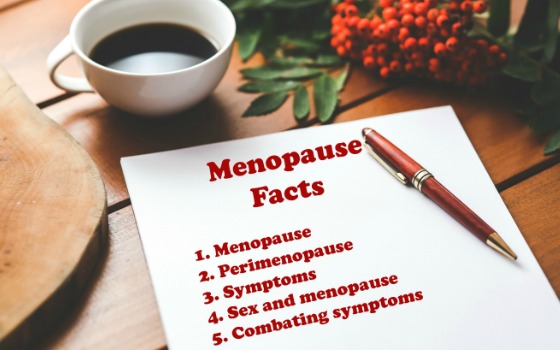How do you cope with something with which you have no experience?
This past Sunday evening, the harsh reality of life confronted me head on.
My former stepdaughter contacted me through Facebook. It had been 10 years since we last communicated and I was overjoyed to hear from her again.
“I’ve missed you,” I said. She, it turns out, missed me as well. “How have you been? Everything okay?”
On some level, I suppose I should have expected to receive bad news. It’s like the phone jarring you out of a sound sleep in the middle of the night. Your gut tells you that something is amiss. Somehow, you just know.
 “Ummmm, no, not sure if you know but Dad passed away on Monday.”
“Ummmm, no, not sure if you know but Dad passed away on Monday.”
My ex-husband fell victim to the insidiousness that is cancer. We hadn’t spoken to one another in 20 years and I didn’t know what was going on in his life. To be honest, I really didn’t care to know. We were, after all, divorced. The vows that we made of “till death do us part” were broken a little over a year into the marriage. I moved on with my life and he moved on with his.
His health was in decline while the elements of my life weaved in and out of the good, the bad and the ugly like an unscripted play that had yet to see its final curtain. I was blind to his suffering and the war that his body was waging against him – not because I was in a purposeful state of oblivion, but because I just didn’t know. I had no idea about the crisis with which he was grappling. Cancer had worked its way into his bones, spread to his lungs and then attacked his brain. It’s a horrible way to suffer and an even more unbearable way to die.
I’d mourned the loss of those close to me before, but never have I felt so at odds with myself or been adrift in a swirl of confusion manifested in my emotions. My ex-husband and I didn’t have a relationship anymore. That part of both of our lives was over. Now what?
Do I mourn? Do I not mourn?
I get it. Death is a part of life. Acknowledging it, however, doesn’t make it any easier to deal with it.
When I left my ex-husband all those years ago and subsequently divorced him, our parting of ways wasn’t on the best of terms. I was angry. I was hurt. I felt betrayed. For a long time, I disparaged his name. I would regale friends with colorful stories of how, day after day, our marriage deteriorated after only ten and a half months. A woman scorned? You betcha. But slowly, as the pain lessened with the healing salve of time, I let go of the anger, let go of the hurt, let go of the betrayal — I gave it all up until there was nothing left but a footnote in the book of my life that read, “the former Valerie Williams.”
My ex-husband was a part of my past. On Sunday night, my past and my present collided in a tangle of muddled emotions. The flood rolled in like high tide and left me shaking and gasping for air. I was his ex-wife. I hadn’t been his “Mrs.” for 20 years, yet I didn’t know how I was supposed to feel.
 Supposed to?
Supposed to?
Is there some prescribed protocol not only for whom we are intended to grieve but also how we grieve for them? Some people thought I shouldn’t have had a shred of mourning in my body for him. But is that who I am? Is that something I could honestly do?
I’m a wife for the second time around, and happily so for the past 9 1/2 years with a wonderful man who is the ying to my yang. But I have to admit I cried for my ex-husband. He was once a big part of my life. I once loved him enough to stand before God, my family and my church congregation and utter the words, “I do.” Didn’t that count for something?
As my thoughts and emotions tumbled over and over in my head – like an overflowing barrel of misery being continuously upended, never finding a stable surface upon which to settle – I wondered not just for myself but for other women like me. Surely there are other midlife women who are on their second or third marriage and are faced with the transition of their former spouse, aren’t there? How do we reconcile the feelings of the past with the stark reality that hits us out of the blue?
Are we ‘supposed’ to not care? Are we ‘supposed’ to move on with life as usual without shedding a single tear? Are we ‘supposed’ to quietly ignore that this person once held a spot of love in our heart?
Dammit, I didn’t know what I was supposed to be feeling. My angst was so profound that I shed tears that served multiple purposes: sadness at knowing the pain my ex-husband endured while his body stopped fighting; sorrow for the daughter who would no longer see her father again; anger at my abject confusion; fault for not being able to find the words to express what I was feelings to my husband, who didn’t know how to comfort me.
For all my misgivings, for all my questions and for the overwhelming misery that swept over me like a relentless stiff wind in a turbulent storm, I came to understand that the solace I sought was within me all along. My reasons, my motivation, my emotions – they were all mine. Mine. I would deal with the circumstances as I saw fit, not based on what anyone else said or thought. And so I was finally able to mourn for all the right reasons.
I fell out of love with my ex-husband years ago. That didn’t stop me from being human.
Rest in peace Todd Steven Williams.





You put into words beautifully all the conflicting and confusing feelings. Surely a lot of people confront this. Thank you for sharing.
Thank you, Cathy. It took some time to get to this point. I felt it was a fine line that I was walking, but in my heart I knew that I couldn’t hide mourning his death.
Yes, there is no rulebook out there for this kind of thing (or, for that matter, anyone else’s death). Healing has its own timeline. You did share a life at one point in time, and, while I’ve never been through something like this, I can marvel at the emotions that a death releases in all of us. Relationships we thought were dead live in hidden recesses of our lives. I am happy that you are finding ways of coping.
Thank you so much Alana. Yes, it’s difficult, but we do find ways to cope.